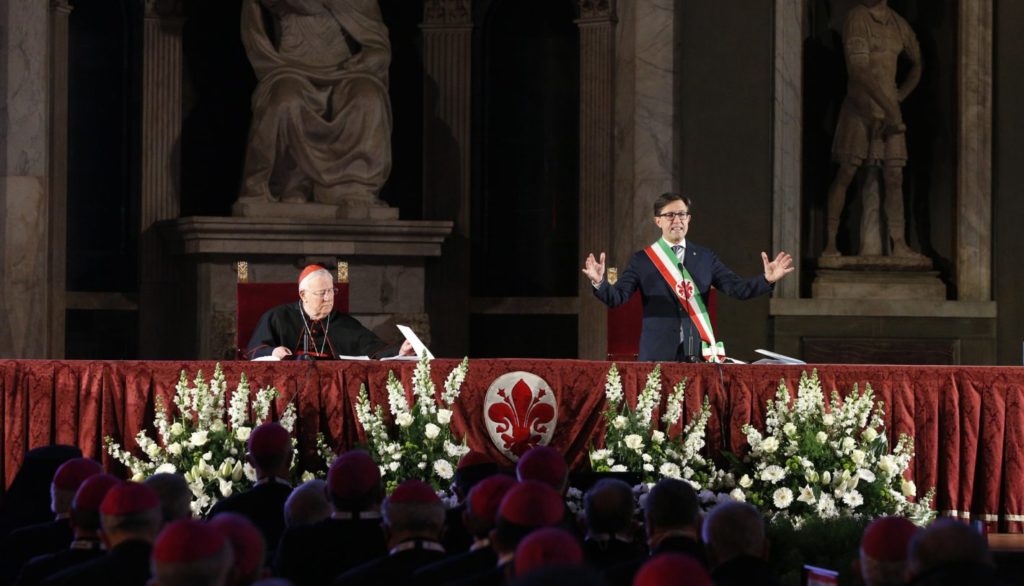The war disaster that has struck the borders of Europe in recent days and kept everyone on edge has passed into silence, but last weekend in Florence something happened that needs to be given more importance, especially at this particular historical moment.
A hundred bishops and mayors from countries bordering the Mediterranean - among them the Archbishop of Barcelona, the Auxiliary Bishop of Madrid and the mayors of Valencia and Granada - met for the first time to discuss together how to foster peace in these often war-torn territories, religious clashes and international rivalries that foster isolation and spread death, if we think of the many migrants who have attempted to cross the Mediterranean in makeshift boats over the years and then ended tragically.
The central theme of peace
The Florence event had been planned for some time, at the request of the Italian Bishops' Conference, and only by a sad coincidence it took place close to the war that broke out on the Russian-Ukrainian front. But it has much to do with the present day, because the central theme was and is precisely peace. Two years earlier, a meeting of bishops was held in Bari, attended by Pope Francis, who on that occasion loudly reiterated that war, any war, is "madness, a madness to which we cannot resign ourselves."
How timely these words are and how significant it is, therefore, that the representatives of the Catholic Church and the administrators of the various cities bordering the Mediterranean have come together to find lasting paths to peace, seeking to "institutionalize" processes of mutual dialogue. They have done so in the footsteps of the Venerable Giorgio La Pira, who in the years immediately following the Second World War embodied evangelical values in his political activity as mayor of Florence, and imagined the Mediterranean as a "modern Lake Tiberias".
Alternative ways to war
In the midst of a war of unpredictable consequences, it is all the more urgent to find alternative ways to war, taking advantage of every possible opportunity for encounter. And this is the purpose and meaning of the document signed in Florence, a "Charter" that aims to inspire a truly peaceful path for the future, starting from the important crossroads of history, traditions and different cultures that is the Mediterranean.
But let us turn to the contents of the Florence Charter.
First of all, the signatories are aware of the benefits to be derived from "intensifying cooperation in their own cities" in order to promote justice, fraternity, respect for religious denominations, the safeguarding of the planet and the fundamental rights of each individual.
To better meet these challenges, it is necessary to recognize "the diversity of heritage and traditions" as an element shared by all humanity (nature, environment, culture, languages, religions); the importance of educating young people in the values of good; the creation of common university programs; the recognition of the universal right to health and social protection; the urgency of solutions to avoid catastrophic climate change; the opportunity to initiate new forms of cooperation between politicians, scientists and cultural and spiritual leaders; the importance of caring for the vulnerable and those who are forced to migrate....
The Charter concludes with some specific requests ("invocations"), firstly to the governments of all Mediterranean countries to establish "regular consultation" with mayors, religious representatives and cultural institutions to involve them in decisions affecting the future of communities.
Next, they call for the promotion of educational programs at all levels, "to achieve a new universal solidarity and a more welcoming society", and for the promotion of initiatives to strengthen fraternity and religious freedom. Finally, the implementation of greater international cooperation to work for "a more equitable sharing of economic and natural resources".













